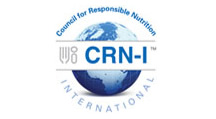CRN is a highly-respected trusted source of information on dietary supplements and functional food issues for federal, state and local lawmakers. Serving as a strong voice for its member companies, CRN advocates for reasonable solutions that enable the industry to innovate and grow while also serving the interests of consumers who want access to a variety of high quality, beneficial and safe dietary supplements. With more than 180 million Americans taking dietary supplements every year, dietary supplements are mainstream products that help promote health and wellness.
CRN Members, learn more about our Government Relations Committee
CRN actively engages in efforts to:
- Fully implement and enforce the Dietary Supplement Health and Education Act (DSHEA) of 1994, the amendment to the Federal Food, Drug and Cosmetic Act, under which the dietary supplement industry is regulated
- Increase Congressional funding for FDA’s Office of Dietary Supplement Programs
- Advocate for laws that recognize the appropriate role of dietary supplements and functional food in government policy and programs
- Demonstrate the potential health care cost savings from dietary supplements
- Communicate the importance of the dietary supplement industry’s self-regulatory efforts and best practices
- Cultivate relationships with elected officials and work with the Congressional Dietary Supplement Caucus to share information the benefit, quality and safety of dietary supplement and functional food products
- Strengthen industry relationships by encouraging elected officials and staff visits and tours of CRN member companies’ manufacturing facilities to see first-hand how GMP regulations are implemented
The dietary supplement industry is a major economic engine successfully employing more than 615,000 Americans and generating $6.76 billion in state and local taxes—money that helps build and supply schools, police and fire departments, roadways and other projects—and $10.7 billion in federal taxes. In the United States, the dietary supplement industry’s overall economic impact in 2023 is $159 billion and it continues to grow.



